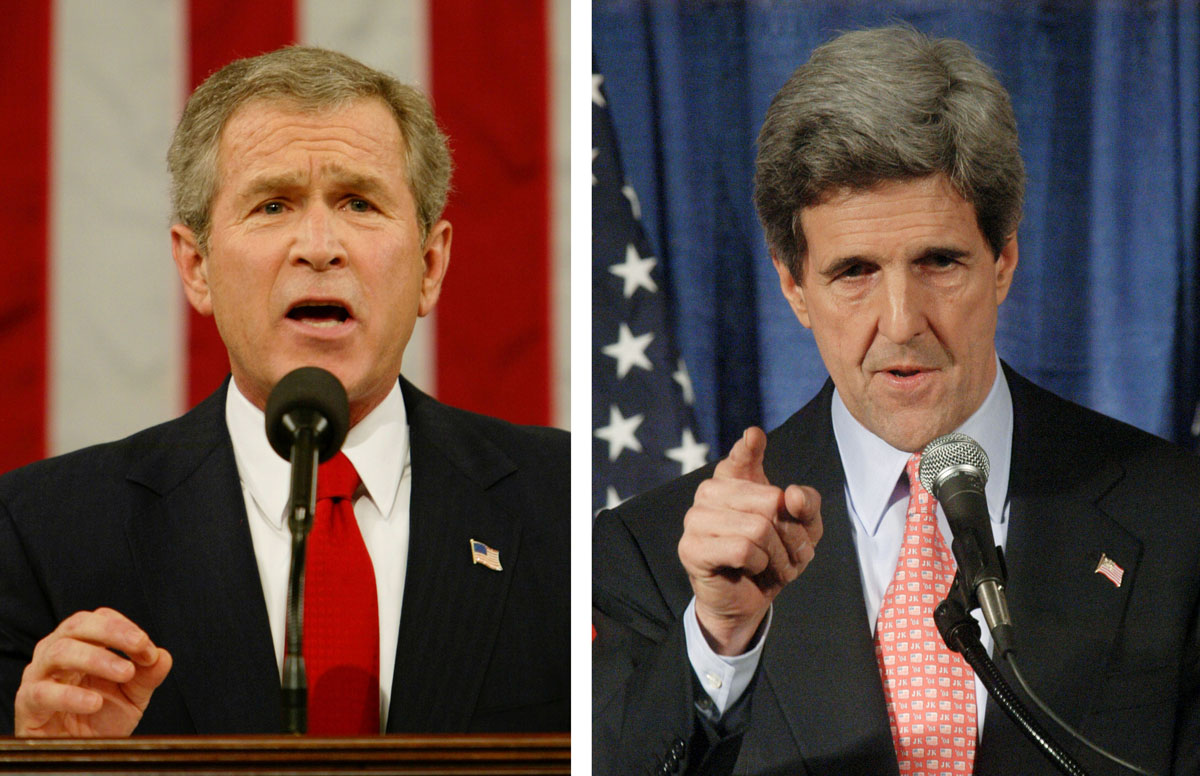
Throughout this election, some big debate topics were mostly foreign affairs due to the war on terror, economy, healthcare, and social issues such as abortion. Americans were eager for a president who could handle the war well. Kerry argued the liberal side of these arguments, one of his campaign slogans was "Stronger at home, respected in the world", showing that he was more focused on domestic concerns. He also argued that Bush was not handling the war well. On the other hand, Bush argued for the conservative side and had to defend his first term while also making promises for the future. Bush attacked Kerry for being a "flip-flopper".

Bush ended up winning with 50.7% of the vote and 286 electoral votes. This was the smallest margin of victory ever recorded in an election. There was some controversy over the vote count of the election, some press reported irregularities and systemic flaws in the system. There were some errors with electronic voting booths that became popular during this election. This suspicion was especially prevalent in Ohio, where the vote count was very close. This election was the last time when a republican won the popular vote and the last time when Colorado, New Mexico, Virginia, and Nevada voted republican.
Bush would go on to run a controversial second term, while John Kerry later went on to become Secretary of State.
Sources:
http://www.270towin.com/2004_Election/
You did a great job summarizing this election. This seems to be one of many elections throughout American history in which the candidates seem more focused on tearing down their opponents than building up their own campaign. This is evidenced in Kerry's criticism of Bush's tactics in the Middle East. The controversy about the electronic voting system is also interesting because of its resemblance to Bush v Gore in the 2000 election. This seems to be a common card to use by the losing party when the presidential race is so close between the candidates.
ReplyDeleteI have never considered the election of 2004 before, even though it occurred in all of our lifetimes. One thing I realized when reading you post is that it was strikingly similar to the 2000 election with Bush and Al Gore in that the elections were very, very close and the results were questionable. However, it was different in that Al Gore was vice president before he ran for office while Clinton was president, which meant his policies were already known clearly. Kerry, on the other hand, was seen as a "flip flopper" because he voted for and later against a bill that gave 87 billion dollars to supplement the Iraq war. In this way, Gore's loss was slightly less predictable, even though both elections were close. Source: ( http://www.npr.org/templates/story/story.php?storyId=4684384 )
ReplyDeleteInteresting post. It's pretty interesting that this election had the smallest margin of victory ever recorded. I've noticed that we've had quite a few of controversial elections similar to this one, such as the 2000 election (what with the Florida recount) and even the recent 2016 election (Russia...). How do these types of American elections signify the division that is present in America, today and in the past? And what is the reason for that division?
ReplyDelete